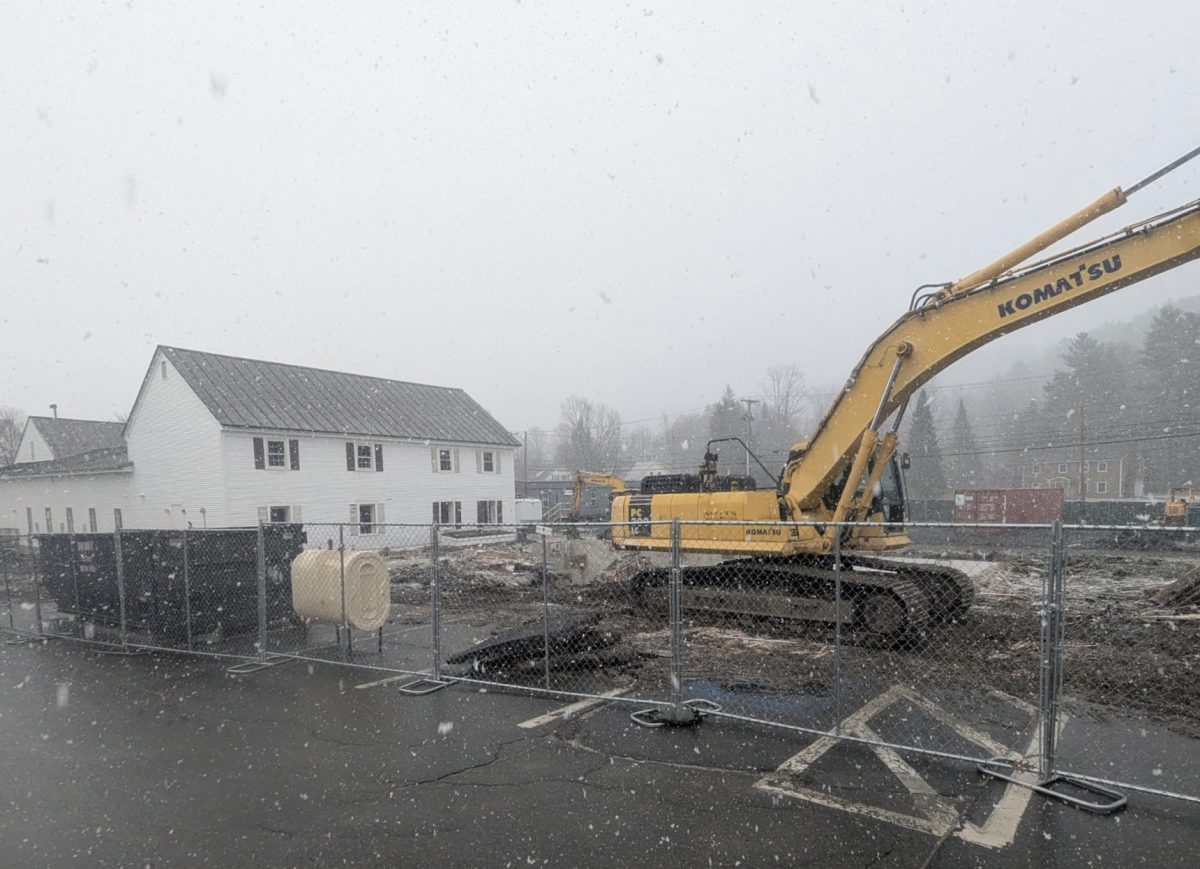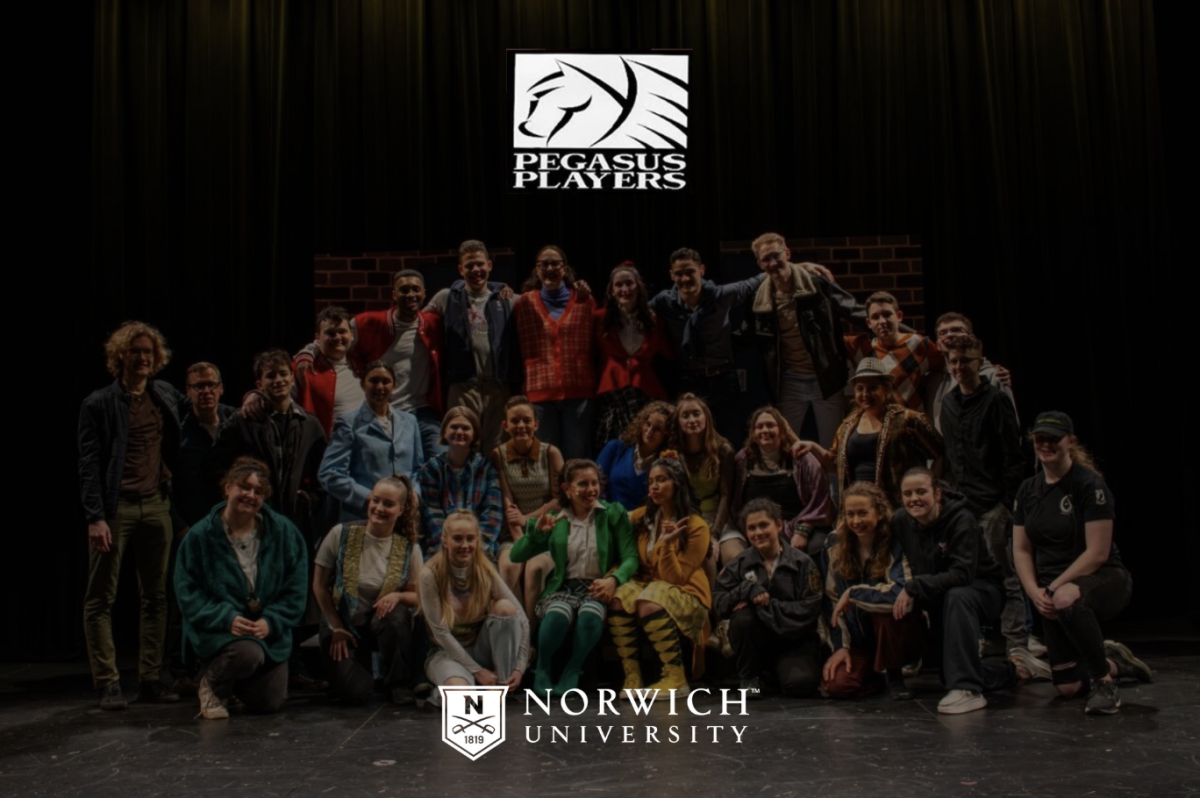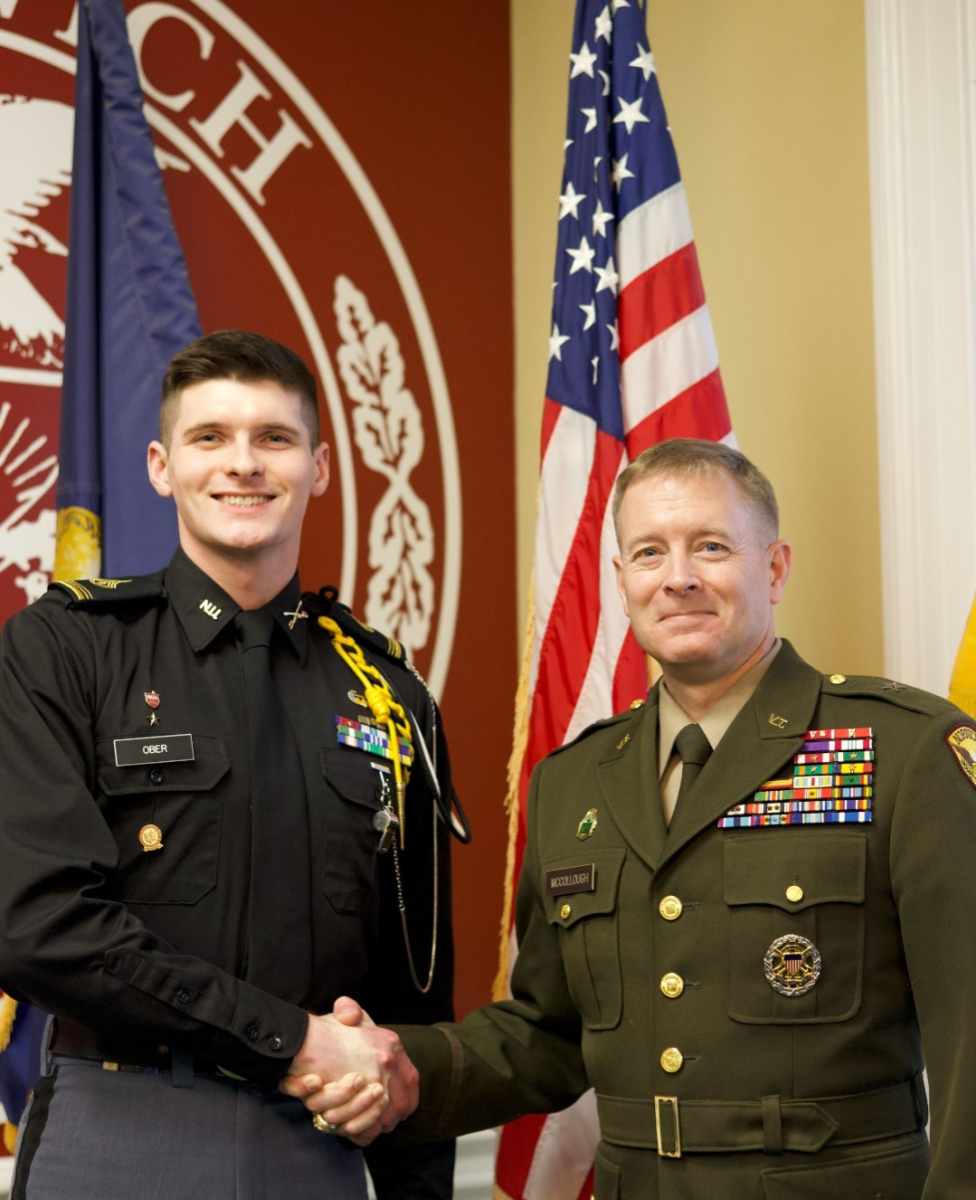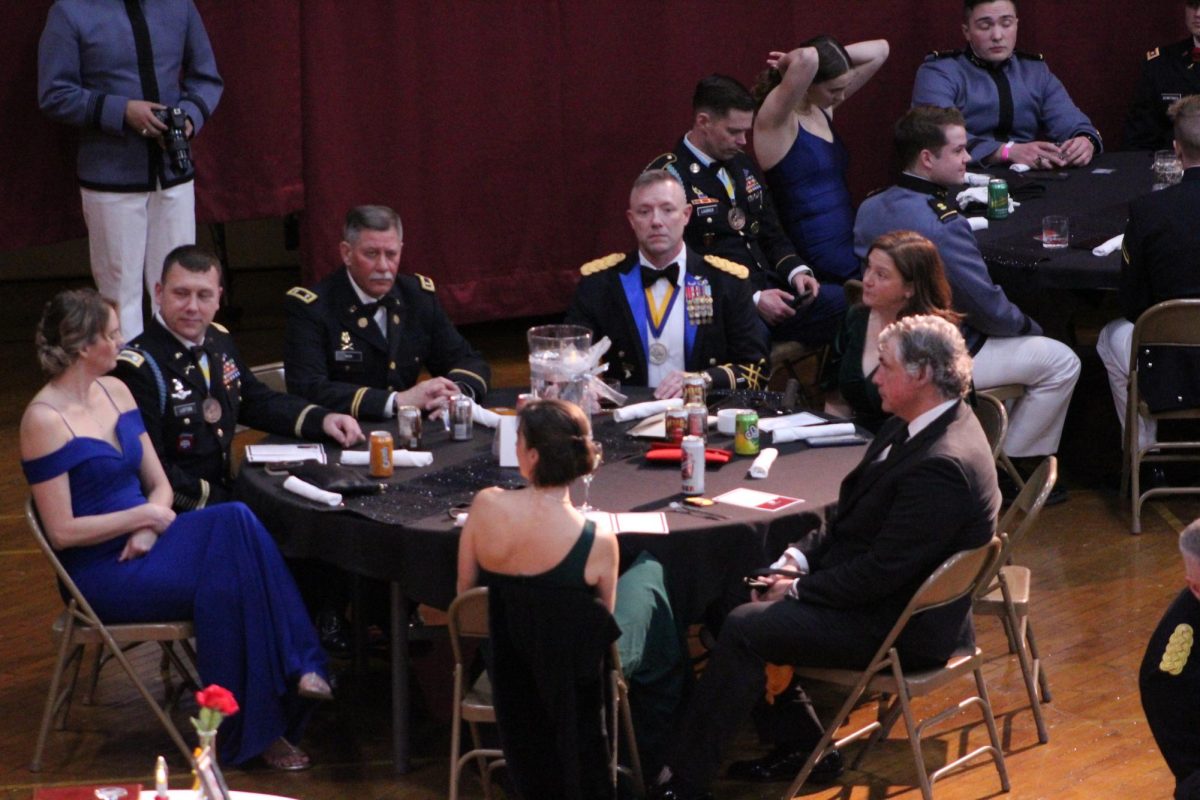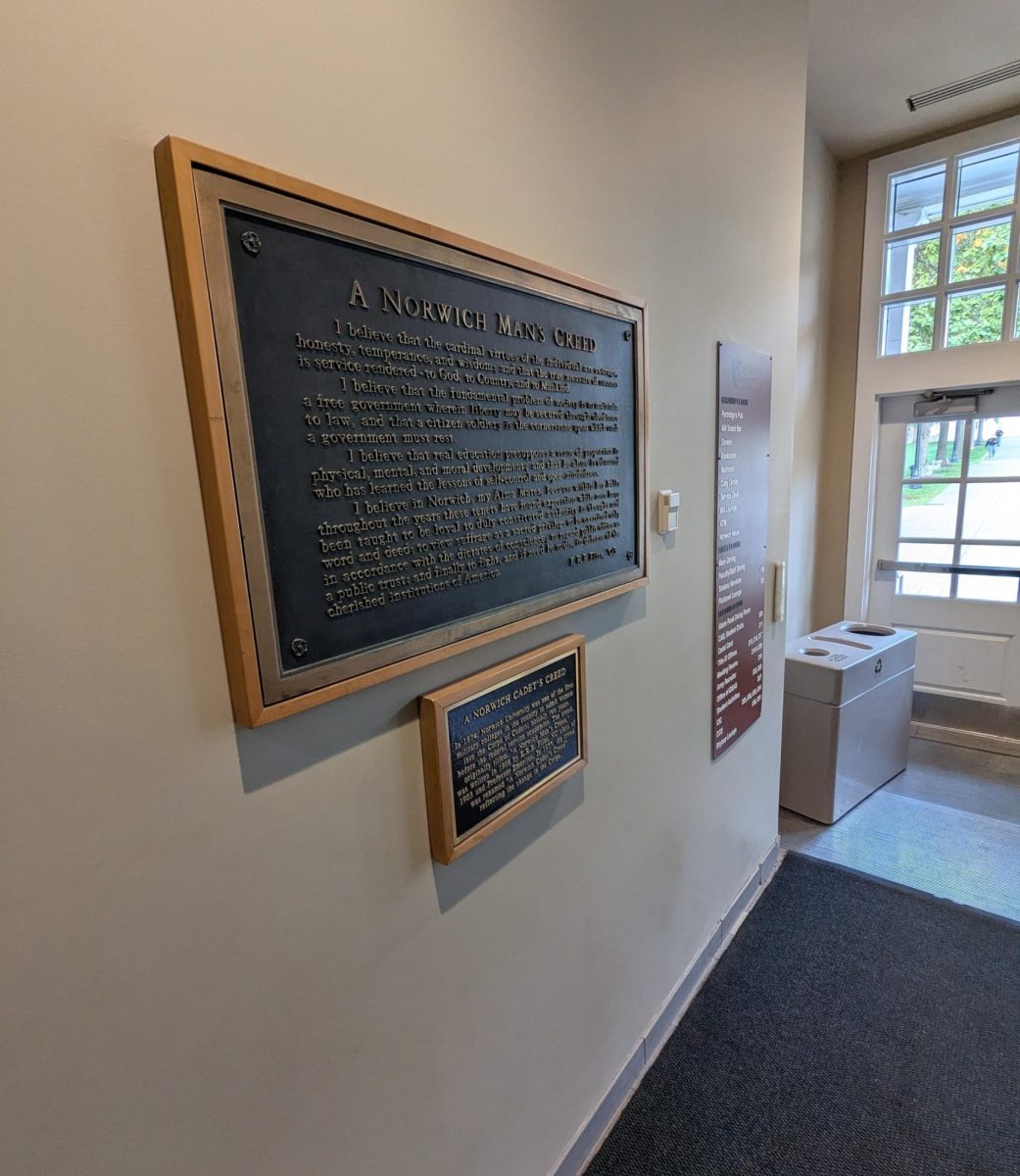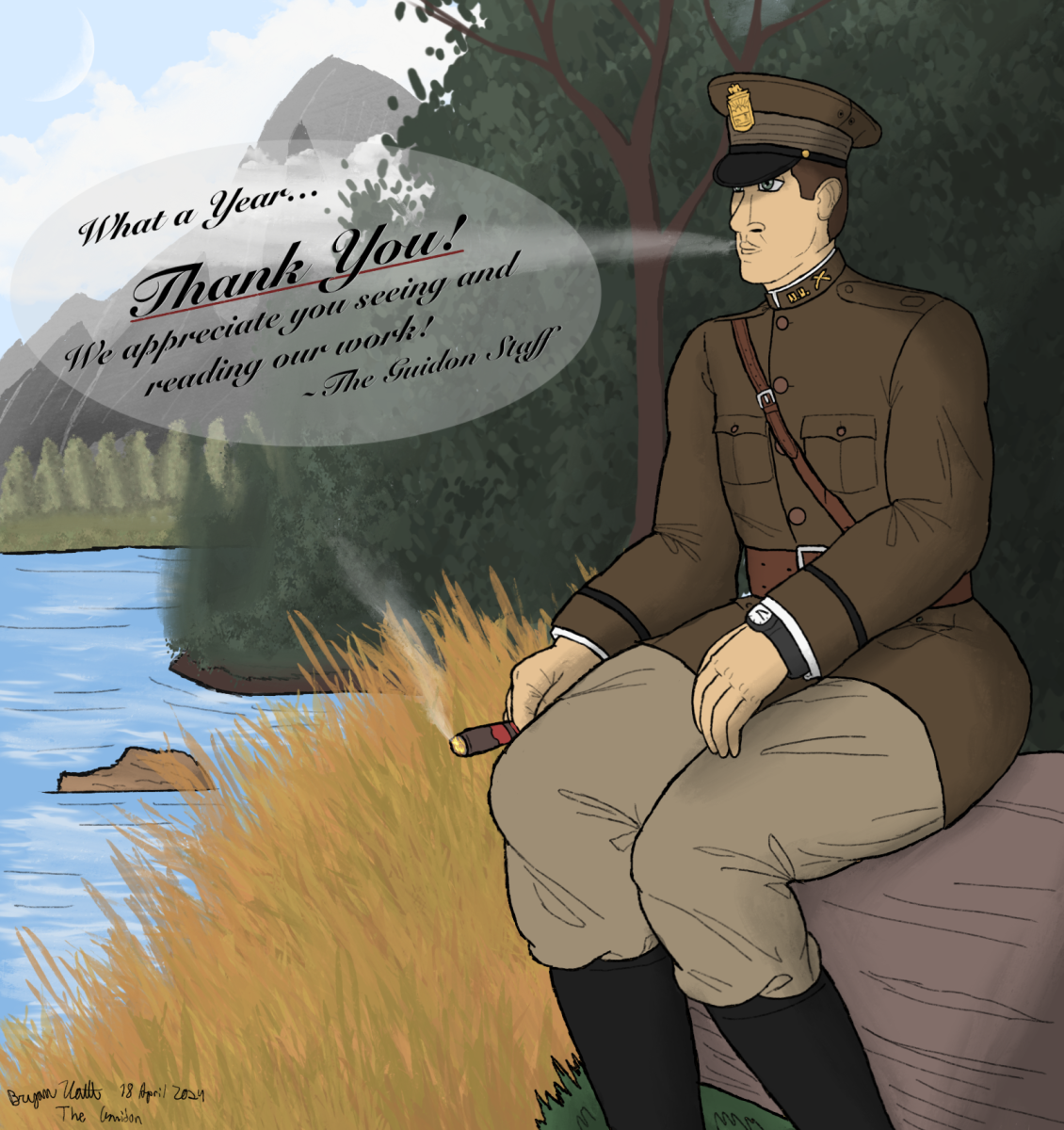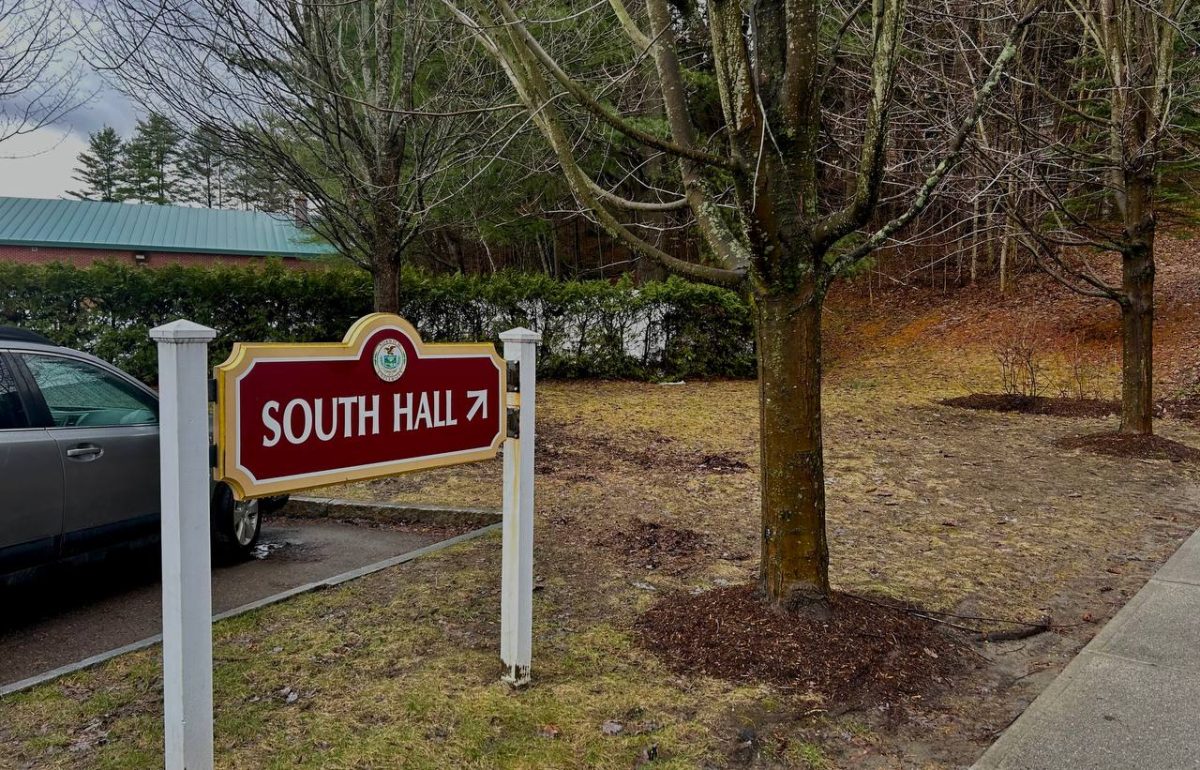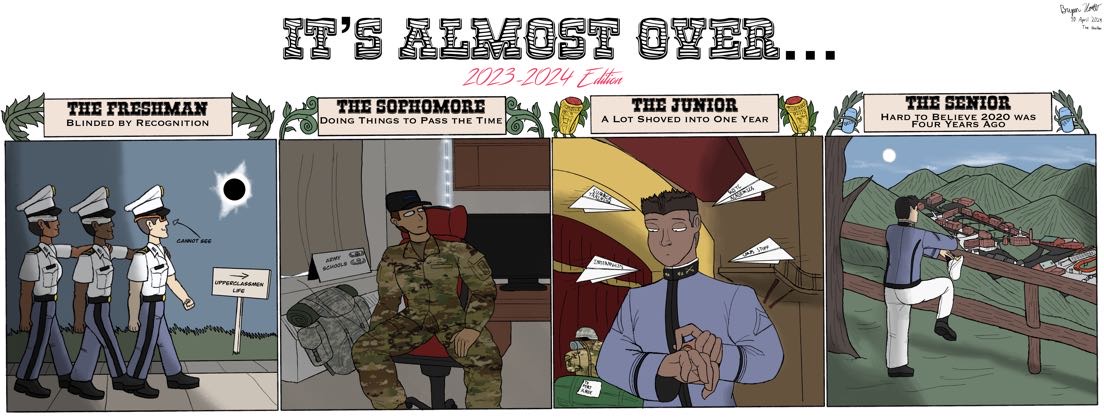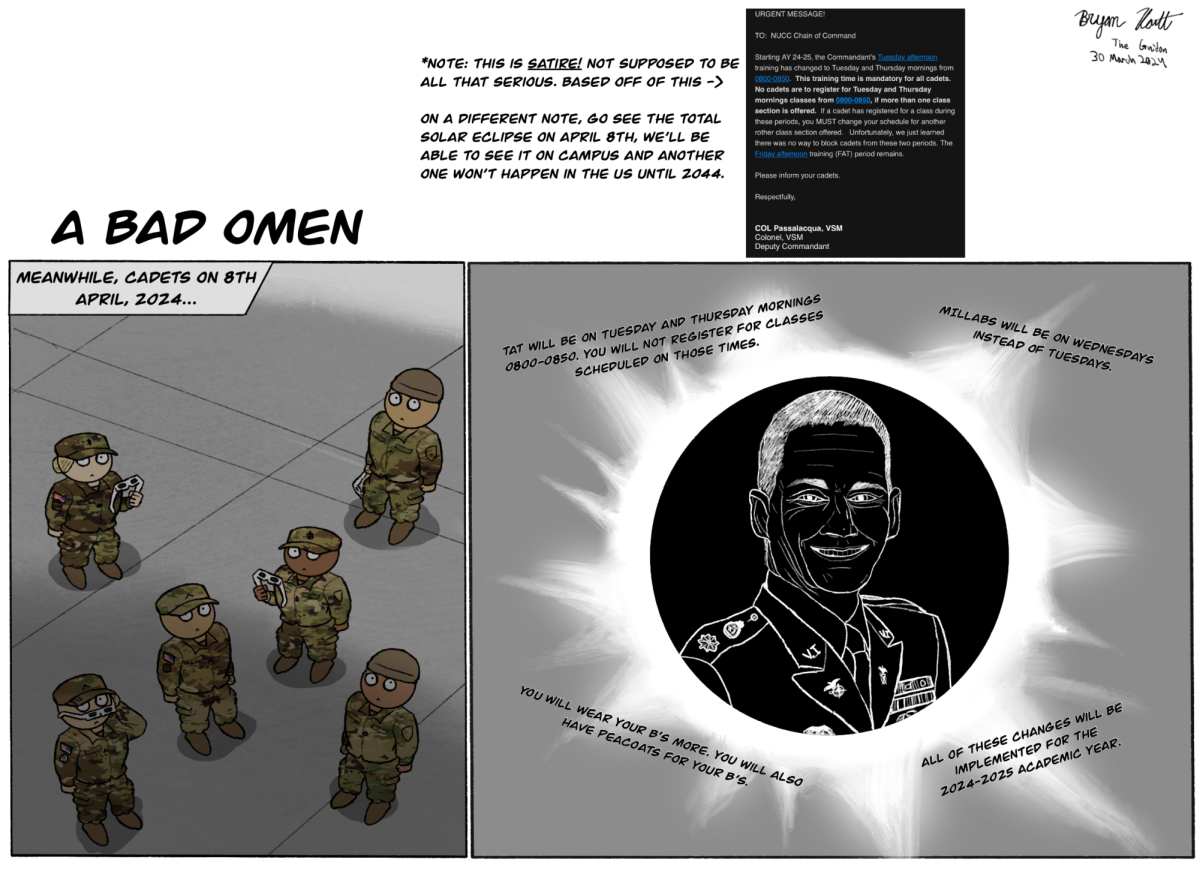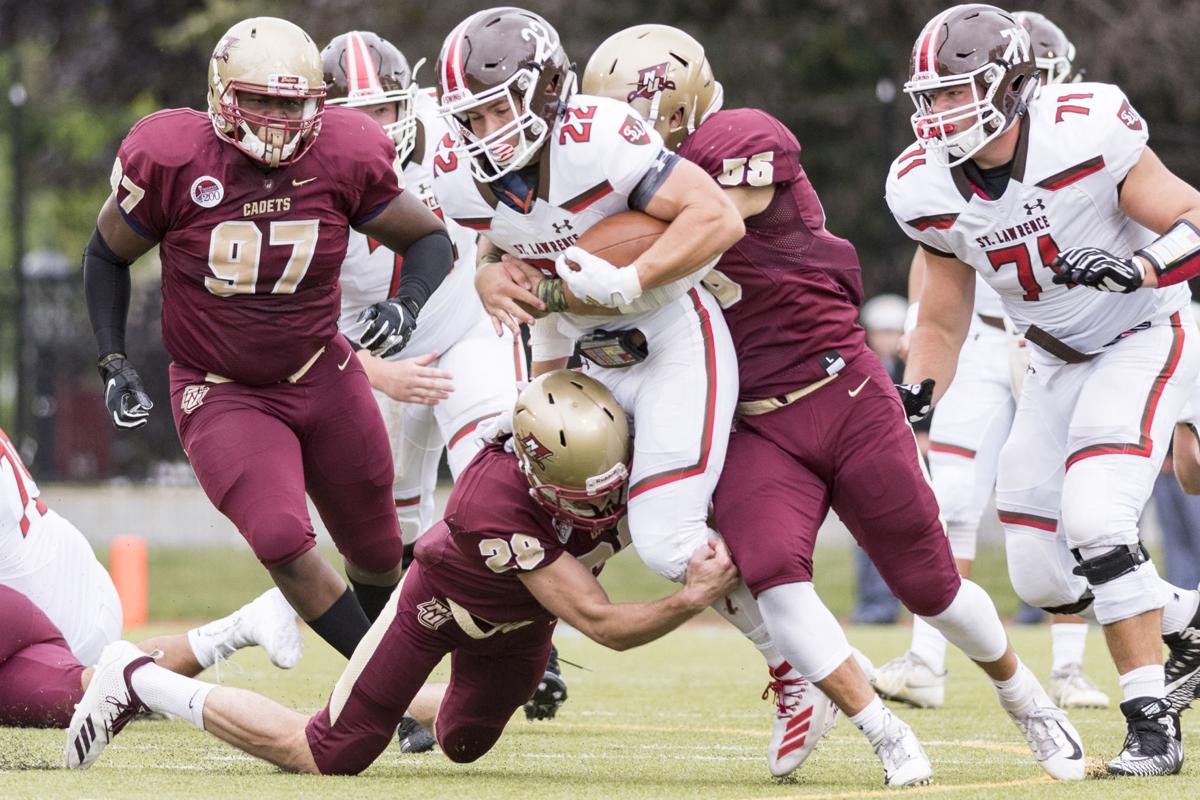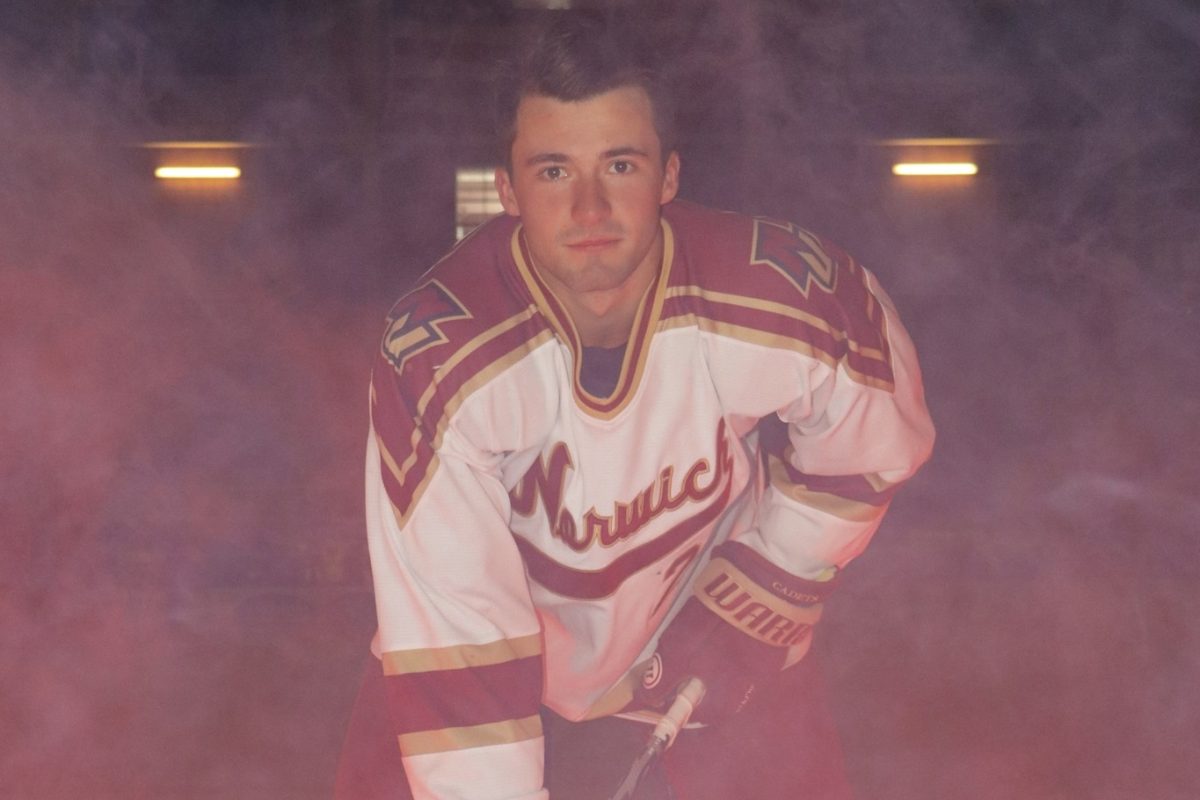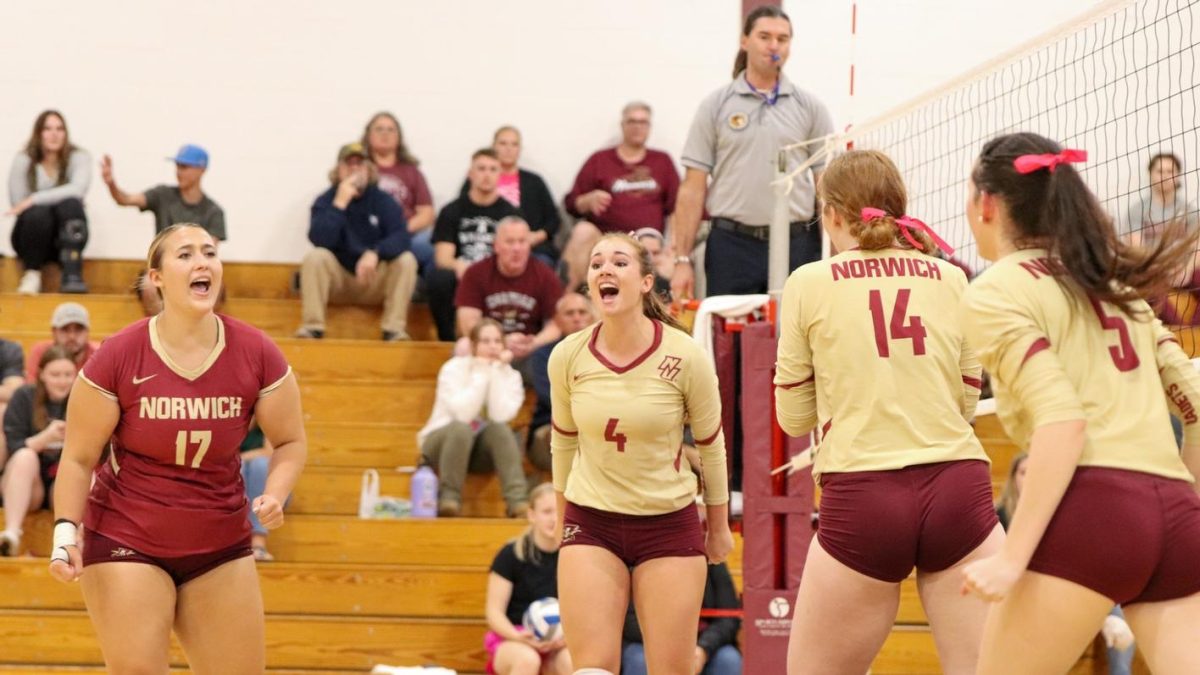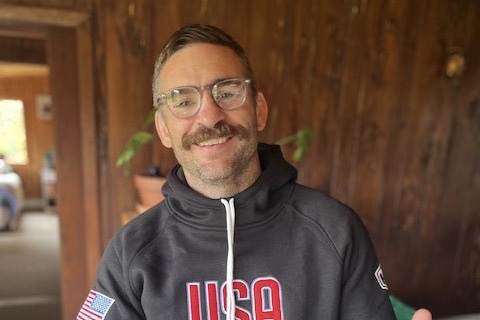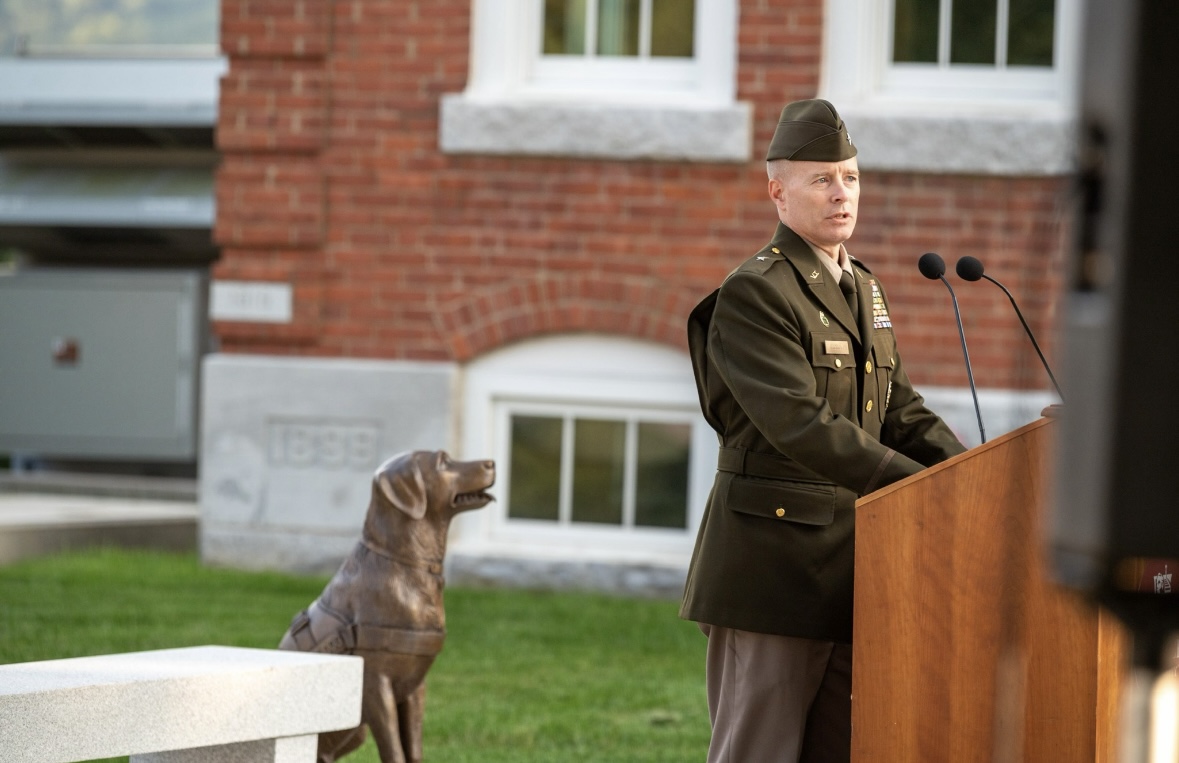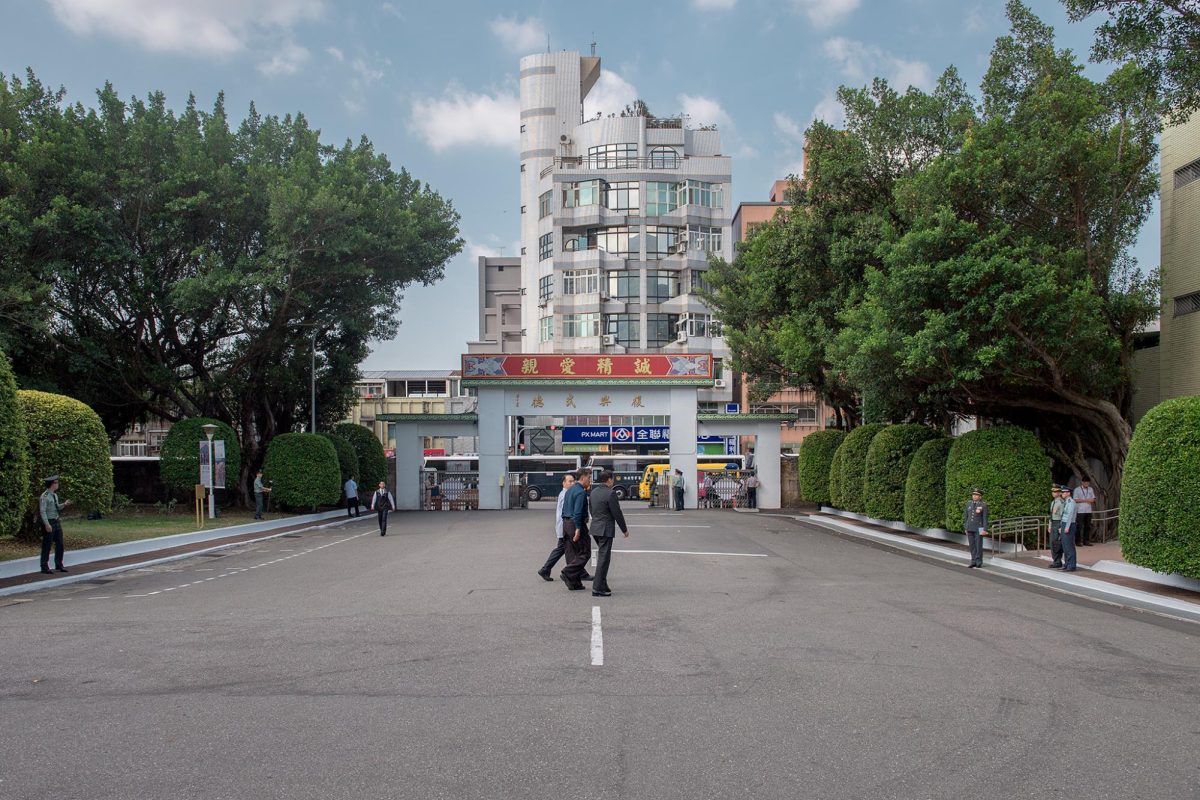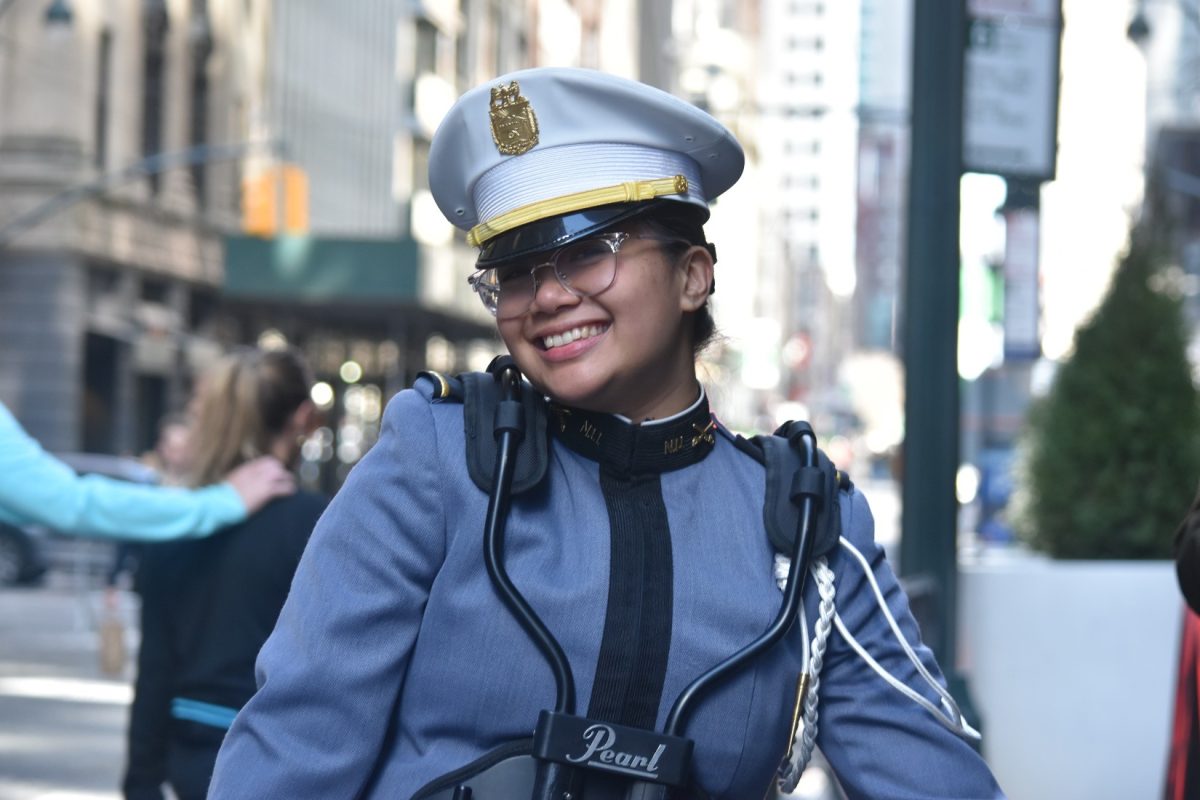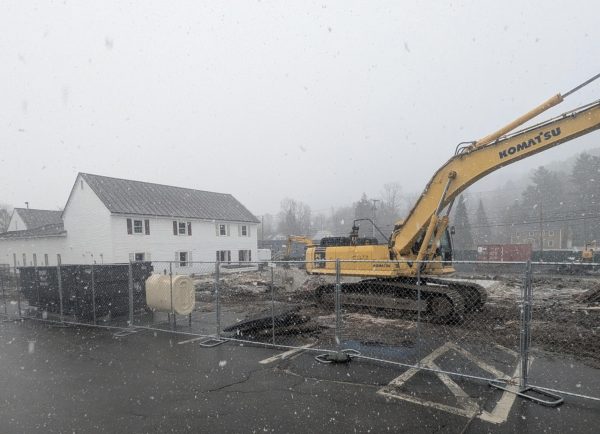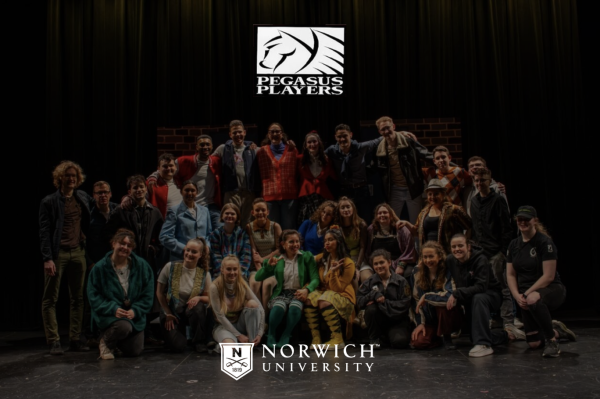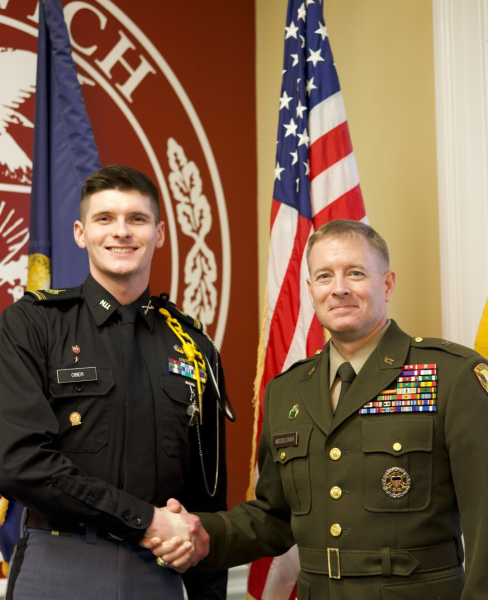Norwich announces new regimental cadet commander
Tuesday, February 15, 2023, the Corps of Cadets was notified that Cadet Henry Dennee received the 2023-2024 Regimental Commander position.
“I think excited is the best word to describe this feeling. A little bit overwhelmed knowing that there is a lot to be done now. But for the most part, I’m really excited,” said Henery Dennee, a mechanical engineering student and the recently appointed 2023-2024 Regimental Commander for the Corps of Cadets.
The process of obtaining the Regimental Commander position started long ago.
January and February are times of tremendous worry for juniors in the Corps of Cadets at Norwich University. Every year, juniors prepare for months to sit on boards in hopes of receiving an officer position in the Corps for the following year. They must demonstrate superior appearance, outstanding leadership value, and the ability to devote substantial time to the Corps and the Cadets under their command.
For some junior Cadets, this application process is much more grueling and anxiety-ridden than for their counterparts. These Cadets apply for arguably the most sought-after position in the entire Corps of Cadets, the Regimental Commander.
Ryan Cranston, a senior political science major and the current Regimental Commander for the Corps of Cadets, said, “The Regimental Commander is responsible for providing intent, purpose, and a vision for the regiment as a whole. They have to think big picture and not focus on just the Freshmen or just the upperclassmen.”
Even becoming competitive for the Regimental Commander position is an achievement in itself. Colonel William Passalaqua, the Deputy Commandant of Cadets, Norwich Class of ’88 and an essential member of the interview process for the position of Regimental Commander, said a potential candidate must have “very good grades, a solid PT (physical fitness) score, experience in leadership positions, an understanding of the Corps itself and where the challenges are,” and must have strong “personality, charisma, [and] confidence.”
After being determined that an individual has met the minimum criteria for the position, three interviews and rankings take place. This year, “11 candidates met the requirements. So the first process was those 11 candidates being interviewed by a board,” says Colonel Passalaqua.
Based on the ranking from the initial interview, five Cadets moved forward. Colonel Passalaqua said, “Those five candidates interviewed with the Dean of Students and myself. We spent 45 minutes with each candidate after reviewing their application. Once we were complete [with the second round interviews], we discussed the candidates and decided who was best fit to move forward.”
Three cadets were recommended to move forward to the final round of boards, this time with William McCollough, the Commandant of Cadets, who makes the ultimate decision for the Regimental Commander role.
This procedure is just the beginning. Cadet Dennee’s actual work as Regimental Commander is just commencing.
One of the biggest challenges of a Regimental Commander is learning and grasping a whole new type of leadership. Thankfully, past Regimental Commanders and the future work tirelessly together to ensure the Corps continues its excellence over the years.
Cranston graciously offered what he believes is the best advice for upcoming Regimental Commanders, “Set work and personal boundaries. A lot of the time, you will feel that if something doesn’t get done ASAP, you are falling behind. This could not be further from the truth. Take care of yourself if you want to be able to do your job and take care of other people.”
When Dennee was questioned on what he would like to say in one of his initial statements to the Corps of Cadets, he said, “We all came here for a reason, and I think when everyone realizes the reason why they came here they’re going to understand that what the Commandant Staff wants to do, what the last Regimental Staff did, and what hopefully next years staff is going to be continuing to do, is in everybody’s best interest and hopefully everyone can get on board.”
Your donation will support the student journalists of Norwich University. Your contribution will allow us to purchase equipment and cover our annual website hosting costs.
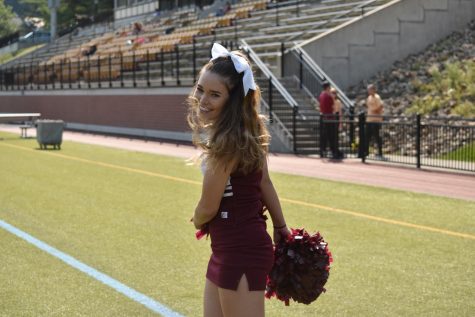
Sophia Righthouse is part of the Class of 2025, majoring in Political Science and English while minoring in Leadership studies.
At Norwich University,...
